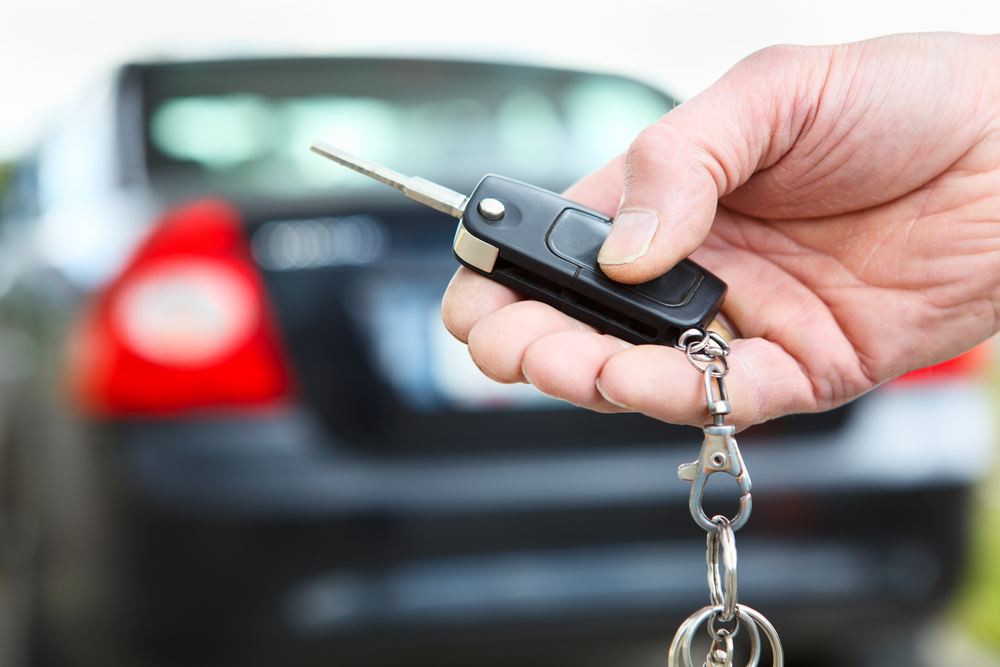
Who Pays for the Rental Car After an Accident in Alabama?
If you’ve been through a car accident in Alabama, there’s a good chance you’re going to need transportation to keep up with the practicalities of daily life, such as commuting to work, running errands, and fulfilling family obligations. You many also be wondering who pays for the rental car after an accident?
Alabama’s laws and insurance policies play a significant role in determining who bears the responsibility for the costs associated with a rental car after an accident. The determination of fault is a key factor; if another driver is to blame, their insurance is typically expected to cover the rental costs. But what happens if fault is disputed or if the at-fault party lacks adequate insurance coverage?
In this article, we’ll take a closer look at how insurance works for rental cars after an accident, the process of claiming a rental car, and the potential duration of such coverage. Our goal is to make sure you’re informed about your rights and the available resource. Let’s get started!
Basics of Rental Car Coverage After an Accident
Understanding rental car coverage after an accident is essential when figuring out your next steps after a wreck. The coverage largely depends on the determination of fault, the specifics of the insurance policies involved, and Alabama’s state laws governing auto accidents and insurance.
Determination of Fault
In Alabama, the fault system dictates that the party responsible for the accident bears the financial burden for damages, including the cost of a rental car for the affected party. If the other driver is determined to be at fault, their insurance company is generally responsible for covering the rental car expenses. However, proving fault and negotiating with insurance companies can be complex processes that require thorough documentation and sometimes legal support.
Insurance Coverage
- At-Fault Driver’s Insurance: If the other driver is found at fault, their liability insurance should cover your rental car costs. Yet, this is contingent upon their policy limits and the specifics of their coverage. It’s important to initiate a claim with the at-fault party’s insurer promptly to ensure rental car expenses are covered.
- Your Insurance Policy: Regardless of fault, your own auto insurance may cover rental car costs if you have rental reimbursement coverage. This optional coverage pays for a rental car while your vehicle is being repaired due to a covered loss. It’s subject to daily and total limit caps, which vary by policy.
Rental Reimbursement Coverage
Rental reimbursement is an optional add-on to your auto insurance policy, not automatically included. It typically has daily and maximum coverage limits, for example, $30 per day up to a total of $900. This coverage is activated regardless of who is at fault, provided you have it before the accident occurs. It’s essential to review your policy or consult with your insurance agent to understand the specifics of your coverage.
In cases where the at-fault driver does not have insurance or is underinsured, your path to a rental car can become more complicated. If you have uninsured/underinsured motorist coverage, it may cover your rental car expenses. However, this also depends on the specifics of your policy. In some cases, it may be necessary to reach out to an experienced car accident lawyer for guidance.
Key Takeaways
- Fault Determines Responsibility: The party at fault is typically responsible for covering rental car costs.
- Insurance Coverage is Crucial: Both the at-fault driver’s liability insurance and your own coverage play significant roles in rental car expense coverage.
- Optional Coverage: Rental reimbursement coverage on your policy can provide a safety net, regardless of fault.
- Legal Support May Be Needed: Disputes or denials by insurance companies might necessitate legal intervention.
How Long Does Rental Car Coverage Last?
When it comes to the duration of rental car coverage following an accident, several factors come into play, including the specifics of the insurance policy, the extent of damages to your vehicle, and negotiations with the insurance companies involved.
Insurance Policy Limits
Most insurance companies set limits on rental car coverage, both in terms of the daily rental cost and the total duration for which this cost is covered. For instance, a typical policy might allow for $30 per day for rental expenses, with a maximum cap of $900 or a 30-day limit. These limits mean that the insurance will cover the rental cost up to 30 days or until the $900 cap is reached, whichever comes first. You’ll want to check your insurance policy or speak with your agent to understand the specific limits of your coverage.
Repair Time
The time it takes to repair your vehicle is a primary determinant of how long you’ll need a rental car. If your car is repairable, insurance companies generally agree to cover a rental car for the duration of the repair period. The repair time should be reasonable and necessary based on the extent of the damages. For example, if a mechanic estimates a two-week repair time, the insurance coverage for a rental car should align with this timeframe.
Total Loss Cases
In situations where your vehicle is deemed a total loss, the duration of rental coverage might be different. Insurance companies often provide a rental until a settlement offer is made for your totaled vehicle. Once an offer is made, they may extend rental coverage for a few additional days, allowing you time to acquire a new vehicle. The specific duration can vary but generally ranges from a few days to a week after the settlement offer is presented.
Negotiating with Insurance Companies
The duration of rental car coverage can sometimes be extended through negotiation with the insurance company, especially if the vehicle repair or total loss settlement process is delayed. If you encounter delays that are out of your control, documenting these delays and communicating with the insurance adjuster can help extend your rental period appropriately.
Key Takeaways
- Understand Your Policy: Knowing the specifics of your insurance policy’s rental coverage is essential.
- Communicate with Your Insurer: Keep in touch with your insurance company about the status of your vehicle’s repairs or the total loss process to ensure rental coverage aligns with your needs.
- Documentation Is Key: Maintain records of repair estimates and communications with insurance adjusters to support any requests for extensions on rental coverage.
Tips for a Smooth Rental Car Claim Process
Navigating the process of securing a rental car after an accident can be straightforward with the right preparation and knowledge. Here are some essential tips to ensure a smooth rental car claim process:
- Understand Your Insurance Coverage: Before an accident occurs, familiarize yourself with the specifics of your auto insurance policy. Know whether you have rental reimbursement coverage, what it entails (daily limits, total limits), and any conditions or exclusions that apply. This knowledge is crucial for setting realistic expectations about the coverage you can receive in case of an accident.
- Promptly Report the Accident: Immediately after an accident, once everyone’s safety is ensured, report the incident to both your insurance company and the at-fault party’s insurer, if applicable. Early reporting is vital for a quick claims process and can help in securing a rental car more rapidly.
- Gather and Organize Documentation: Keep a comprehensive record of all documents related to the accident and the ensuing claims process. This includes the accident report, photos from the accident scene, repair estimates, and any correspondence with insurance companies. Having these documents readily available can expedite your claim and help resolve disputes.
- Communicate with Insurance Adjusters: Communicate directly and regularly with the insurance adjusters handling your claim. Provide them with all the necessary documentation and information to assess your claim promptly. Clear and open communication can prevent delays and misunderstandings in the claims process.
- Negotiate the Terms of Your Rental Car Coverage: If the provided rental car coverage does not meet your needs, don’t hesitate to negotiate with the insurance company. This might include requesting a higher daily coverage limit or an extension of the rental period if repairs take longer than initially estimated. Be prepared to justify your request with documentation.
- Seek Legal Advice if Necessary: If you encounter resistance from the insurance company, or if the process becomes overly complicated, consulting with a personal injury attorney can be beneficial. An attorney experienced in auto accident cases can provide valuable guidance, help navigate the claims process, and protect your rights.
Learn How Jay Pickering Law Firm Can Help
Working with insurance claims and securing a rental car can feel like an uphill battle. But you don’t have to face it alone. Jay Pickering Law Firm is dedicated to guiding individuals through this process and fighting for the compensation you deserve. We understand the importance of staying mobile while your vehicle is being repaired or replaced. That’s why we help with all aspects of your car accident claim, including you helping you through the rental car process and dealing with insurance adjusters.
100% Free Case Consultation
Reach out to us for a free case consultation with an experienced Alabama car accident attorney. During this consultation, we’ll review the specifics of your case and outline your options. Our goal is to make the process as smooth and stress-free as possible, allowing you to focus on what truly matters—your recovery.
- Experience: Benefit from our extensive experience in handling auto accident cases and rental car claims.
- Personalized Support: Receive tailored advice and support that addresses your unique situation.
- No Obligation: Our consultation is entirely free and comes with no obligation to you. It’s an opportunity for you to learn about your rights and the services we offer.
Reach out to us anytime to get started on your free consultation.

Attorney Jay Pickering brings over 27 years of unwavering dedication to personal injury law, with a sharp focus on representing those injured in car, truck, and motorcycle accidents across Alabama. A proud alum of the University of Alabama School of Law, Jay is a member of the Alabama State Bar and the American Bar Association.
